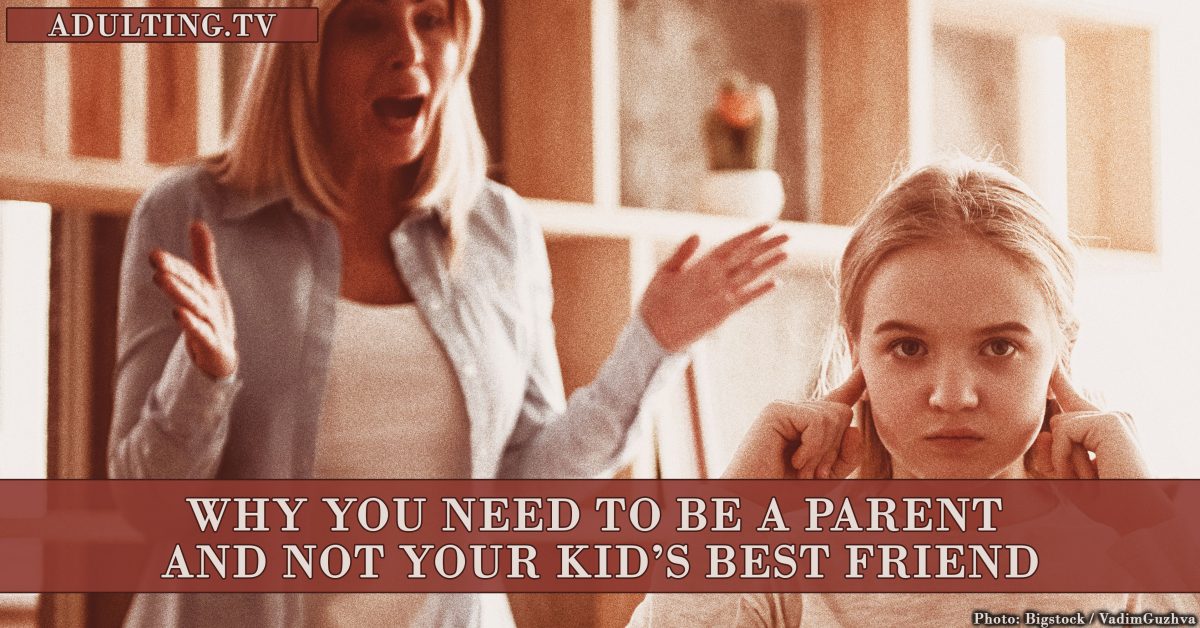It’s rarely fun.
And it’s easy to fall into the trap of wanting to be the “cool” parent or even of wanting your child to think of you as a “best friend.”
However, the reality is that your kid doesn’t need another friend. What s/he needs is a parent. Technically, that’s what you are. After all, you either gave some of your genetic material, or you chose to adopt. When that happened, you agreed to be a parent.
Now you need to act like one.
Stability is important for children.
One of the most important things you can do as a parent is provide a stable environment for your child.
Some research indicates that stability is more important than family structure. This is a huge relief to me since my son is now in a single-parent home.
In order to be a parent and provide stability, you need to have a schedule and rules. Children sometimes whine about rules and structure, but the reality is that they need it.
Structure, and a supportive environment that helps maintain that structure, are necessary for children to thrive.
Your child doesn’t understand why bedtime is important, or why you need to limit their screentime. You might feel mean for sending them to bed or making them eat dinner with you at the table, but the reality is that’s what it takes to be a parent.
My son chafes at the idea of going to bed between 9:00 p.m. and 9:30 p.m. But if he doesn’t get to bed during those times, he turns into a monster when it’s time to get up between 6:30 a.m. and 7:00 a.m.
The structure and stability in my son’s life means he knows when it’s time to do homework, when he can hang out with his actual friends, and when it’s time to go to bed. He feels safe, and he has a sense of what’s next.
These are important things for children, and the research bears it out. That’s why, when I travel for business, I rely on my parents to keep some amount of structure in my son’s life.
The stability he experiences, whether I’m here or not (I’m mostly here, though), is good for him.
Your child isn’t your confidante.
When I took a court-mandated parenting class as part of the conditions of my divorce, one of the concepts they pressed home was this: your child isn’t your confidante.
We like to think that by telling our children how we really feel, we’re being honest and straightforward.
The reality, though, is that your kid isn’t emotionally prepared for you to hear about your problems with your parents. They aren’t ready to hear your deepest, darkest secrets.
If you’re looking for a buddy, look for an adult.
I have friends my own age that I can talk to about relationships issues, how much I dislike one of my son’s teachers, and the challenges associated living where I live. My son doesn’t need to be burdened with that shit.
The good news is that you can be open and invite your child’s confidence without trying to be their friend.
Establish a pattern early on of listening and engaging with your child. Be open and honest in an age-appropriate manner when they ask tough questions.
When my son complains about our least-favorite teacher, I empathize with him, but I don’t bad-mouth the teacher. “I know it’s hard sometimes. I had teachers that I didn’t get along with, too. But you still need to do your work and do a good job. You’re smart enough to get through this.”
What I’d really like to say is, “I know your teacher is being an asshat and that’s a dumb assignment. Let’s skip it and go do something fun instead.”
My son and I have talked about thorny issues, from politics to his friends to *gulp* sex. He knows I don’t shy away from the tough subjects, and I take him seriously. He knows I’ll be honest and straightforward, even if I won’t give him details I don’t think he’s ready for.
Invite your child’s confidence, but do it from a place of teaching and guidance, not from a place of peer-like friendship.
Your child needs you to be a parent. You can help and guide them in a way that is more likely to result in long-term success for life. But not if you’re more concerned about being your child’s best buddy.
You can still be “cool” and be a parent.
While your goal shouldn’t focus on being cool, you can still be an awesome person, and be a parent.
My son and I love a lot of the same geeky things. His friends know that when they come over here, I’ll make popcorn and play Rock Band with them if they invite. They also know that if they have a Batman question, I’ll have the answer.
While I still make them go to bed when they sleep over, and I won’t let them just roam the mall aimlessly for hours upon hours, they do think I’m cool — at least for now.
If you can provide a safe and comfortable environment for your children and their friends, and you make a little effort to get to know them, you’ll be considered cool, even during times you have to be a parent and say no.
Walking that line can be challenging, and you might have to experiment a bit to find it. But the important thing is that you be a parent by setting expectations for your child, teaching life lessons, and enforcing consequences.






